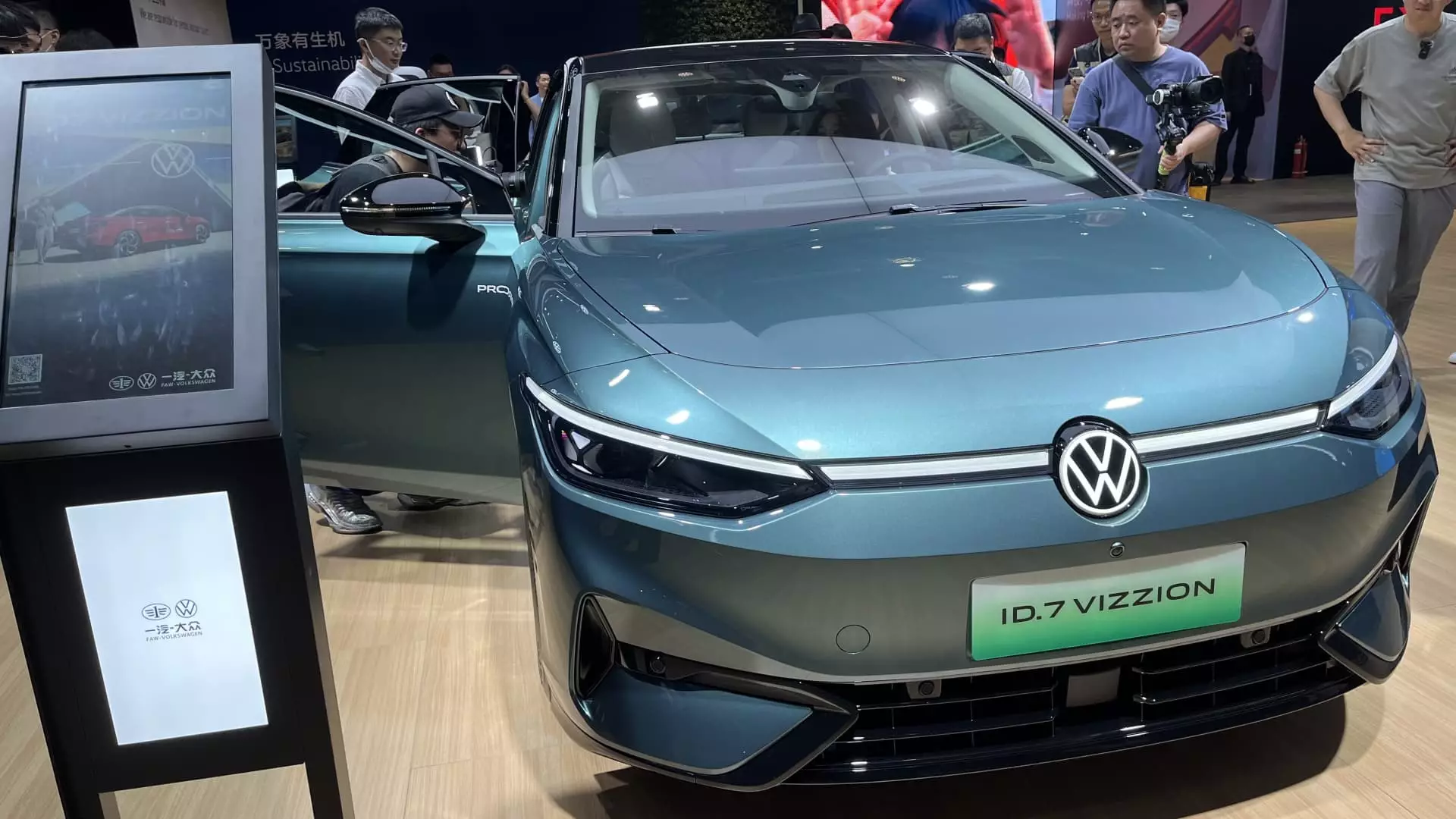The Chinese automotive market is undergoing a rapid transformation, with Chinese brands emerging as leaders in the shift towards new energy vehicles. This transition has put established global car brands such as Volkswagen, Nissan, and Hyundai at a disadvantage, according to a CNBC analysis of public data for the first three quarters of the year. As China moves away from internal combustion engines, new energy vehicles, including battery and hybrid-powered cars, are gaining traction. Domestic brands like BYD and Tesla have capitalized on this growing market, while foreign brands struggle to keep up.
The Decline of Global Car Brands
Volkswagen, a giant in China’s car market, is experiencing its smallest sales year since 2012. The German auto manufacturer has not been able to make significant headway in the electric car space, despite its substantial presence in the country. In contrast, BYD, a Shenzhen-based company, has achieved remarkable success and is on track to sell 2.5 million vehicles in China this year. Similarly, Toyota has faced challenges in adapting to the market transition to electric cars and is projected to have its worst sales year in China since 2020.
Chinese brands, particularly BYD, have been quick to capitalize on the growing demand for new energy vehicles in China. With around 2 to 3 million sales, BYD is poised to capture a significant share of China’s 8.5 million-strong new energy vehicle market. The Chinese automotive industry is evolving at a faster pace than the market’s growth rate, providing ample opportunities for Chinese companies to compete. Joint ventures with foreign brands present a potential avenue for original equipment manufacturers (OEMs) to establish themselves in this lucrative market.
Chinese consumer preferences are shifting towards electric vehicles, leading to a decline in popularity for foreign brands. Incentives like license plate restrictions in major cities like Beijing further encourage locals to opt for electric cars over traditional fuel-powered vehicles. A Bernstein survey revealed that BYD was the top brand considered by Chinese buyers of electric vehicles, followed by Tesla and Nio. Meanwhile, foreign brands, including Japanese and non-German premium brands, saw their brand traction scores decline year-on-year.
Competition in the New Energy Market
While China’s new energy market is growing rapidly, competition among domestic brands is fierce. BYD has recently launched its most direct competitor to Tesla, the Denza N7, positioning itself as a formidable player in the market. Additionally, Chinese brands are expanding beyond mass-market cars and venturing into the ultra-luxury segment. For example, BYD’s Yangwang brand introduced a giant U8 SUV with a price tag exceeding 1 million yuan ($138,000). As the market becomes increasingly competitive, Chinese automakers are pushing the boundaries of innovation to rival established players like Tesla.
China’s impact on the global automotive industry is expanding rapidly. This year, the country is set to become the world’s largest exporter of cars, surpassing Japan and Germany. Chinese automakers, including BYD, are also making their mark overseas by selling electric cars in international markets. In September, the European Union even launched an anti-subsidy probe into Chinese electric vehicle companies, highlighting the growing force of Chinese automakers abroad.
Chinese brands have taken the lead in China’s transition to new energy vehicles, outpacing established global car brands like Volkswagen, Nissan, and Hyundai. The rapid growth of the new energy vehicle market in China has created substantial opportunities for domestic brands, while posing challenges for foreign brands. As Chinese consumers increasingly favor electric cars, competition within the industry is intensifying. Chinese automakers are capitalizing on this trend by launching new models and expanding their presence in international markets. China’s influence on the global automotive industry continues to grow, setting the stage for further advancements in the new energy vehicle sector.


Leave a Reply